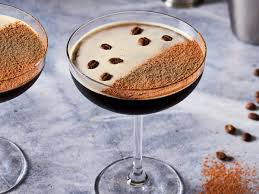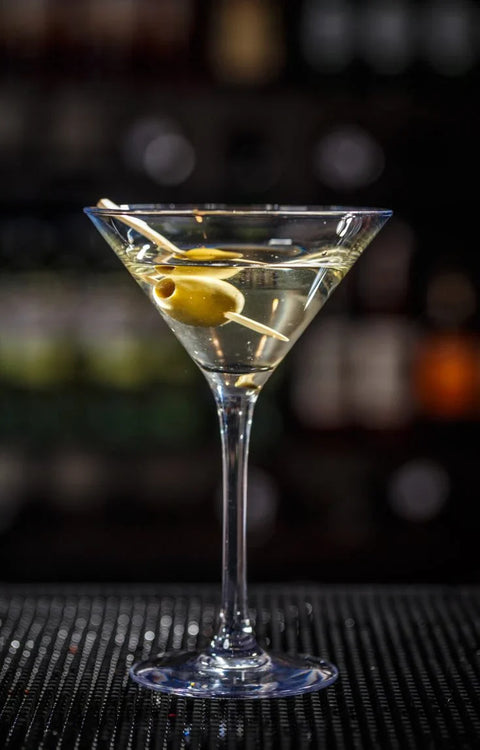Famous Cocktails: A Guide to the World's Most Iconic Drinks
The Martini
Origin: Late 1800s, United States Base Spirit: Gin or Vodka
The martini represents the epitome of cocktail sophistication. Originally made with gin, vermouth, and orange bitters, it has evolved to include vodka variations and countless modern interpretations.
Classic Recipe:
- 60ml gin
- 15ml dry vermouth
- Garnish: olive or lemon twist
- Method: Stirred, never shaken
Old Fashioned
Origin: 1880s, Louisville, Kentucky Base Spirit: Bourbon or Rye Whiskey
One of the oldest known cocktails, the Old Fashioned embodies the original definition of a cocktail: spirits, sugar, water, and bitters.
Classic Recipe:
- 60ml bourbon
- 1 sugar cube
- 2-3 dashes Angostura bitters
- Orange peel
- Method: Built in glass
Negroni
Origin: 1919, Florence, Italy Base Spirit: Gin
Created for Count Camillo Negroni when he requested his Americano be made stronger. The perfect balance of bitter, sweet, and strong.
Classic Recipe:
- 30ml gin
- 30ml sweet vermouth
- 30ml Campari
- Garnish: Orange slice
- Method: Stirred
Margarita
Origin: 1930s-1940s, Mexico Base Spirit: Tequila
Despite disputed origins, this combination of tequila, lime, and orange liqueur has become one of the world's most popular cocktails.
Classic Recipe:
- 50ml tequila
- 25ml Cointreau
- 25ml fresh lime juice
- Salt rim
- Method: Shaken
Manhattan
Origin: 1870s, Manhattan Club, New York Base Spirit: Rye Whiskey or Bourbon
A sophisticated blend of American whiskey and Italian vermouth that has stood the test of time.
Classic Recipe:
- 50ml rye whiskey
- 25ml sweet vermouth
- 2 dashes Angostura bitters
- Garnish: Maraschino cherry
- Method: Stirred
Mojito
Origin: Havana, Cuba Base Spirit: White Rum
A refreshing combination of rum, mint, and lime that originated as a medicinal tonic and became a global favourite.
Classic Recipe:
- 50ml white rum
- 25ml fresh lime juice
- 2 tsp sugar
- 6-8 mint leaves
- Soda water
- Method: Built, mint muddled
Moscow Mule
Origin: 1941, Los Angeles Base Spirit: Vodka
Created to promote vodka in the US market, this refreshing drink in its signature copper mug became an American classic.
Classic Recipe:
- 50ml vodka
- 15ml lime juice
- Ginger beer
- Garnish: Lime wedge
- Method: Built-in copper mug
Daiquiri
Origin: Early 1900s, Cuba Base Spirit: White Rum
A perfectly balanced sour that demonstrates how three simple ingredients can create cocktail perfection.
Classic Recipe:
- 60ml white rum
- 30ml fresh lime juice
- 15ml simple syrup
- Method: Shaken
Whiskey Sour
Origin: 1870s Base Spirit: Bourbon or Rye Whiskey
A classic sour that showcases how egg white can transform a cocktail's texture.
Classic Recipe:
- 60ml bourbon
- 30ml fresh lemon juice
- 15ml simple syrup
- Optional: Egg white
- Method: Shaken
Mai Tai
Origin: 1944, Oakland, California Base Spirit: Rum
Created by Trader Vic, this complex rum cocktail became the flagship drink of the tiki movement.
Classic Recipe:
- 30ml aged rum
- 30ml dark rum
- 15ml orange curaçao
- 15ml orgeat
- 30ml lime juice
- Method: Shaken
Preparation Techniques
Shaking vs Stirring
- Shake: Drinks with citrus, dairy, or egg
- Stir: Spirit-forward drinks without cloudy ingredients
Garnishing
- Citrus twists: Express oils over drink
- Olives: Should be room temperature
- Cherries: Use quality brands
- Fresh herbs: Slap to release oils
Ice Considerations
- Large cubes for spirits-forward drinks
- Crushed ice for juleps and tiki drinks
- Regular ice for shaking
- Block ice for Japanese-style cocktails
Modern Classics
Espresso Martini
Origin: 1983, London
- Vodka, fresh espresso, coffee liqueur
Cosmopolitan
Origin: 1980s, various claims
- Vodka, cranberry, lime, Cointreau
Penicillin
Origin: 2005, New York
- Scotch, lemon, honey-ginger syrup, smoky whisky float
Conclusion
These iconic cocktails have earned their place in drinking culture through perfect balance, interesting histories, and enduring appeal. Whether you prefer spirit-forward classics or fresh, citrusy options, understanding these fundamentals provides a strong foundation for cocktail appreciation.




Comments (0)
There are no comments for this article. Be the first one to leave a message!